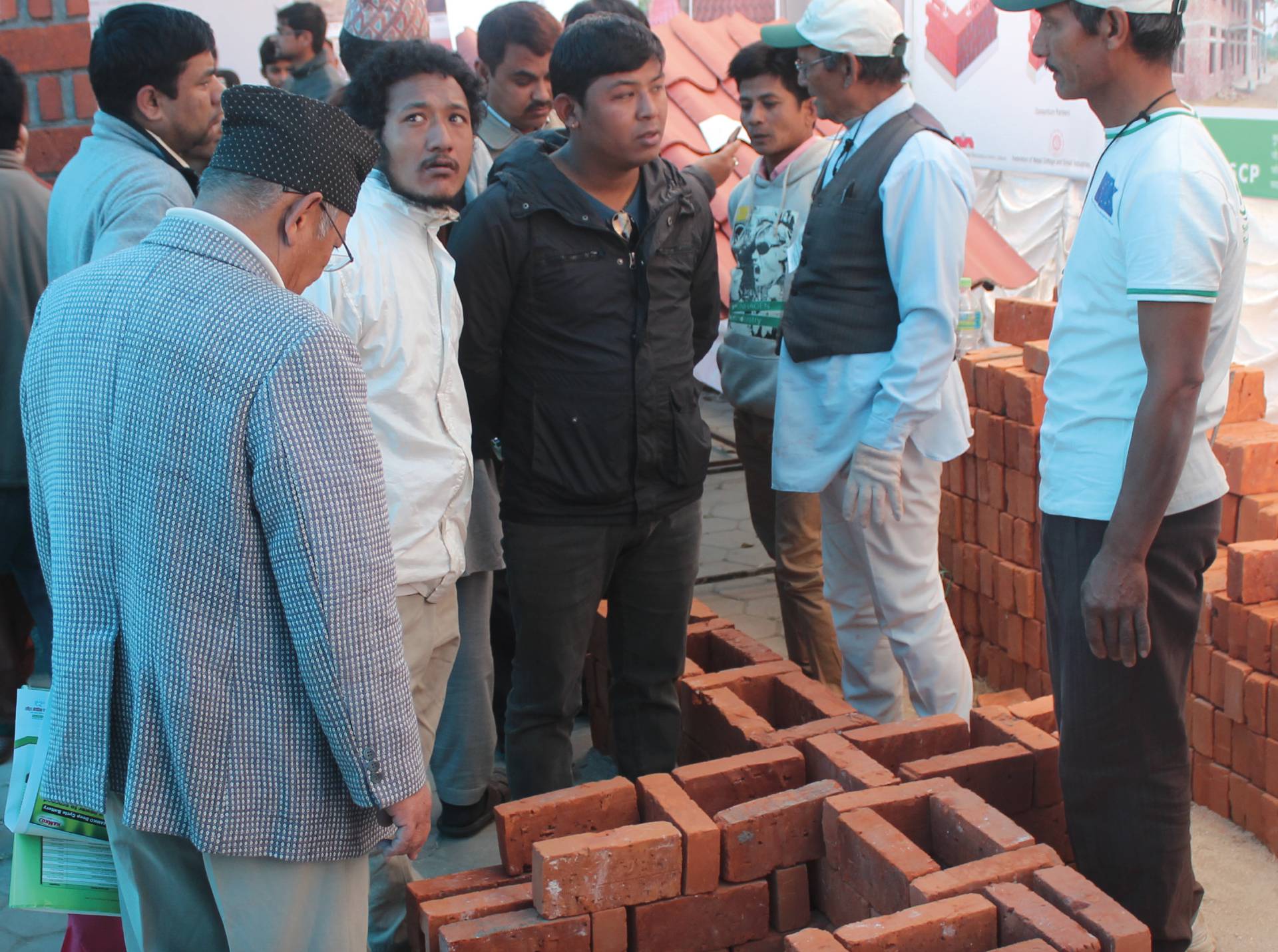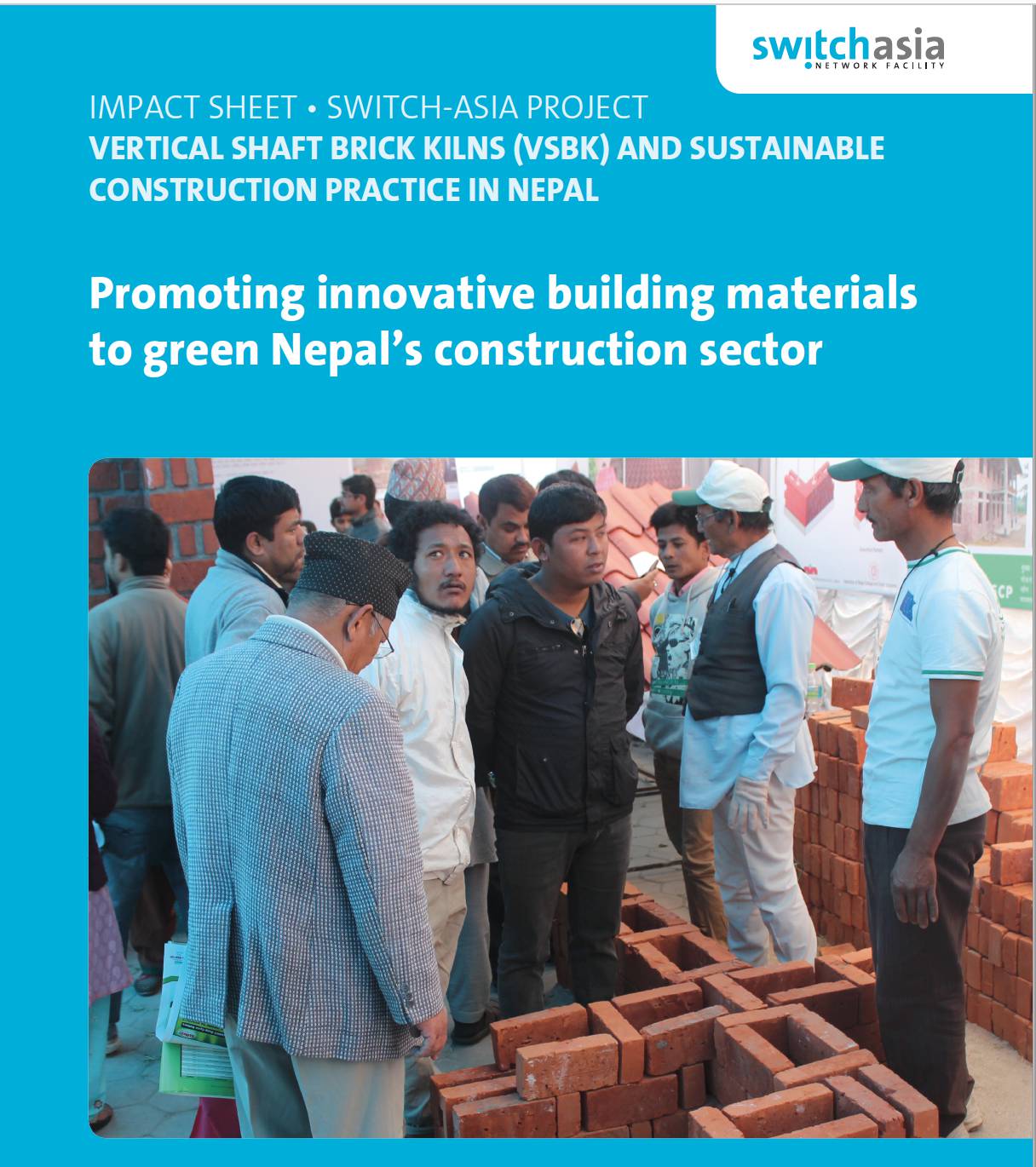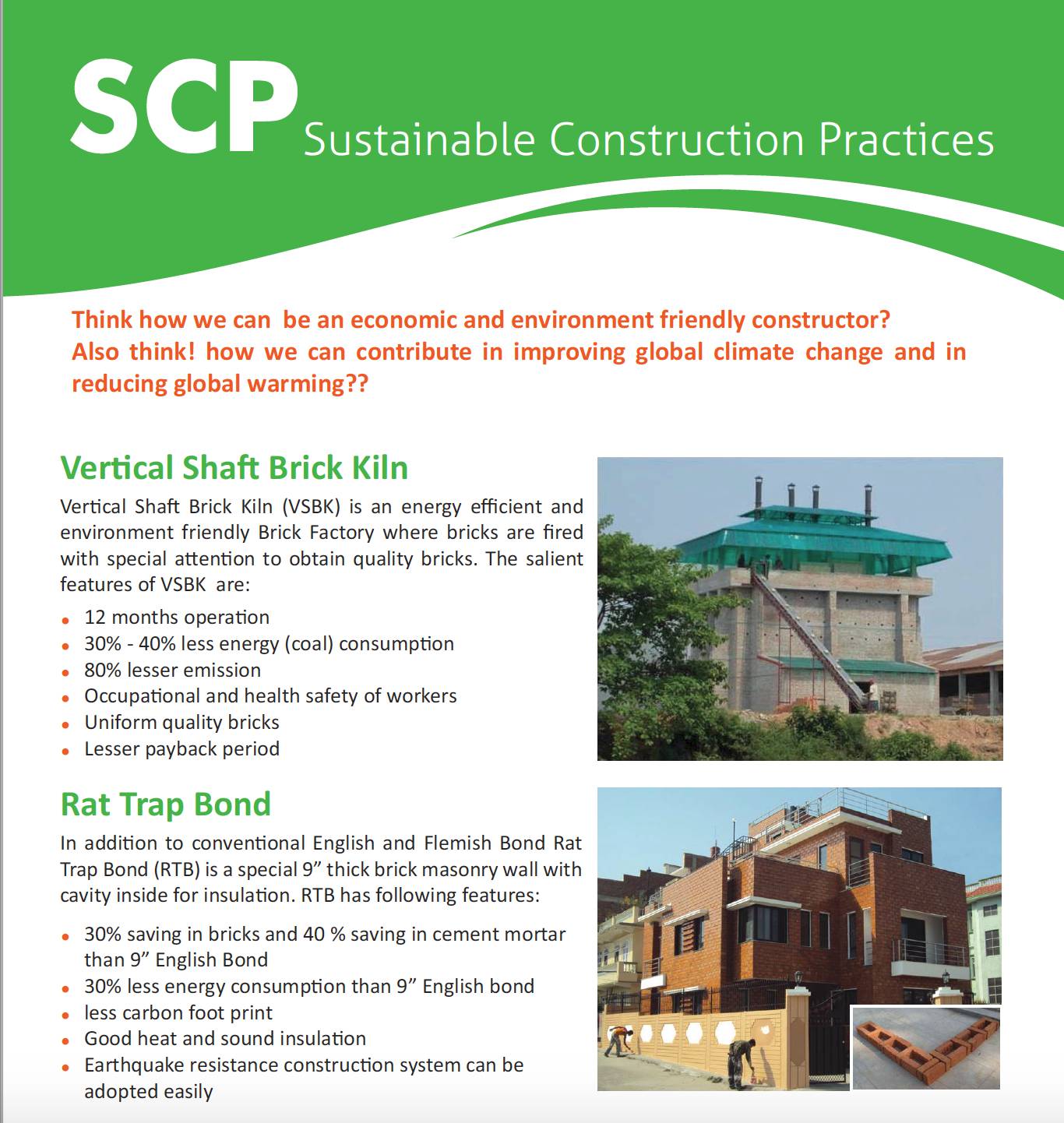
The Challenge
The cotton and textiles sector accounts for 40% of Pakistan’s total labour force and nearly 60% of Katmandu valley is viewed as one of the most polluted areas in Asia. Exhaust fumes have increased four times over the past decade. Poor dispersion conditions, due to high hills and low wind-speeds are pre-disposing Kathmandu to serious air pollution problems. An increasing number of vehicles and conventional brick kilns are worsening the situation. The construction sector, including conventional brick production is a key source of CO2 emission.
The Objectives
The project aimed at promoting sustainable production and consumption patterns in the construction industry, by raising awareness of private sector stakeholders for green building materials and solutions, and by providing consumer information on the benefits of clean energy and energy-saving building material. Specific objectives included:
- Reducing energy consumption and CO₂ emission from the brick and building material production sector in Nepal;
- Promoting SCP patterns in the construction sector;
- Mobilising and capacitating the private sector for green building materials and solutions in cooperation with financial and public sector authorities;
- Informing consumers about the benefits and choices of cleaner and low energy building materials;
- Creating an enabling policy and regulatory framework.
The Way Forward
- In Nepal, construction services are mainly provided by small and medium-sized contractors. Through the project, roughly 6,000 construction specialists, masons, engineers, architects, small contractors and entrepreneurs have enhanced their skills in the application of well-tested sustainable construction technologies, such as concrete hollow block (CHB), micro-concrete roofing, reinforced cement concrete (RCC) door and window frames, and the use of natural round aggregate (NRA);
- Demonstrated the use and application of sustainable construction practices to consumers. The first behavioural changes have been notified; there was an increased use of locally available construction materials, such as NRA;
- Attracted private investment of roughly EUR 2.5 million for 22 new brick-producing VSBK shafts, creating more than 1500 green jobs;
- Organised an International Brick Symposium, involving nine countries, ranging from Peru to Thailand, from Germany to South Africa. The event facilitated knowledge exchange on VSBK technologies within and beyond the countries covered by the SWITCH-Asia programme.



